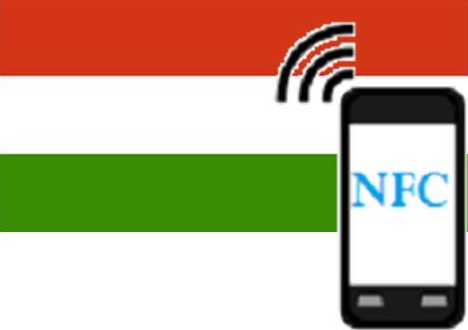The financial institutions are hoping to work together so that smartphone transactions can take on credit card systems.
Six of the biggest banks in Poland have announced that they will be working together in order to create a common standard for mobile payments which would result in a system that could place the dominance of traditional credit card giants at risk.
They are hoping that this will knock the wind out of Visa and MasterCard that currently lead the way in the country.
The banks that are involved in this partnership include Bank Zachodni WBK, Bank Millennium, ING Bank Śląski, Alior Bank, PKO Bank Polsk, and BRE Bank. As a group, the banks working toward this mobile payments system make up 70 percent of the electronic banking market in Poland. They will be working to come up with the standard under the Polish regulator in this sector.
The mobile payments offering will be based on the IKO app from PKO Bank, which was just launched in March.
 The mobile payments system will allow consumers in Poland to be able to complete purchase transactions while in stores, and will be able to make withdrawals from ATMs by entering a unique code that the app has generated. Consumers will also be able to use the app to send money to recipients simply by entering in their smartphone number in a way that has been compared to the UK’s Barklays Pingit service.
The mobile payments system will allow consumers in Poland to be able to complete purchase transactions while in stores, and will be able to make withdrawals from ATMs by entering a unique code that the app has generated. Consumers will also be able to use the app to send money to recipients simply by entering in their smartphone number in a way that has been compared to the UK’s Barklays Pingit service.
The use of this mobile payments system allows consumers to be able to make electronic transactions without the requirement of a credit card. This was a fact that Visa was “not happy about,” according to Wojciech Bolanowsky, from PKO.
At the same time, Boguslaw Kott, the CEO of Bank Millennium, has admitted quite openly that one of the purposes of the bank group in creating this mobile payments system is to challenge the rein of Visa and MasterCard. Kott was quoted to say that “This will be a more competitive system compared to the credit card system. The credit card system will probably be put under a question mark in the future.”
The three leading wireless firms in the country will be launching the new system in the new year.
The three largest mobile phone companies in Hungary have announced that they are working together to be able to launch a payments system in 2014 that will be based on NFC technology.
The purpose of this alliance is to help to move the country upward toward the trends in global communication.
At the moment, the sector is fighting to manage the struggles that remain from the economic downturn as well as from certain sector-based taxes from the Hungarian government that have been applied to telecommunications companies in the effort to better the finances of the nation.
NFC technology will be central to this new mobile payments system that allows transactions at checkouts.
The mobile payment technique through NFC technology allows consumers to use their compatible smartphones at shopping checkouts in order to pay for their purchases. All that they need to do is wave their enabled devices close to a reader, or tap the device against the reader. This reduces the time that is needed to make a purchase, improving convenience for consumers and allowing stores to shorten the checkout process.
The NFC technology based payments system will also be used to replace the electronic smartcard ticket system that is already in place in some of the Hungarian transport systems. It is expected to eliminate the systems that are comparable to the Oyster card in London. This same technology is being used by certain security companies to function as identification that will provide employees access to buildings in the same way that they previously would have used electronic scan cards.
The Hungarian firms are aiming to create mobile payments applications that will work with NFC technology capable devices so that smartphones can be u sed as virtual wallets, containing all of the debit, credit, and loyalty card information that they wish to hold in one place. This suggests that the digital form of the wallet could one day result in a complete replacement of physical wallets and plastic cards, as well as cash transactions.
sed as virtual wallets, containing all of the debit, credit, and loyalty card information that they wish to hold in one place. This suggests that the digital form of the wallet could one day result in a complete replacement of physical wallets and plastic cards, as well as cash transactions.
 The mobile payments system will allow consumers in Poland to be able to complete purchase transactions while in stores, and will be able to make withdrawals from ATMs by entering a unique code that the app has generated. Consumers will also be able to use the app to send money to recipients simply by entering in their smartphone number in a way that has been compared to the UK’s Barklays Pingit service.
The mobile payments system will allow consumers in Poland to be able to complete purchase transactions while in stores, and will be able to make withdrawals from ATMs by entering a unique code that the app has generated. Consumers will also be able to use the app to send money to recipients simply by entering in their smartphone number in a way that has been compared to the UK’s Barklays Pingit service.
 sed as virtual wallets, containing all of the debit, credit, and loyalty card information that they wish to hold in one place. This suggests that the digital form of the wallet could one day result in a complete replacement of physical wallets and plastic cards, as well as cash transactions.
sed as virtual wallets, containing all of the debit, credit, and loyalty card information that they wish to hold in one place. This suggests that the digital form of the wallet could one day result in a complete replacement of physical wallets and plastic cards, as well as cash transactions. 